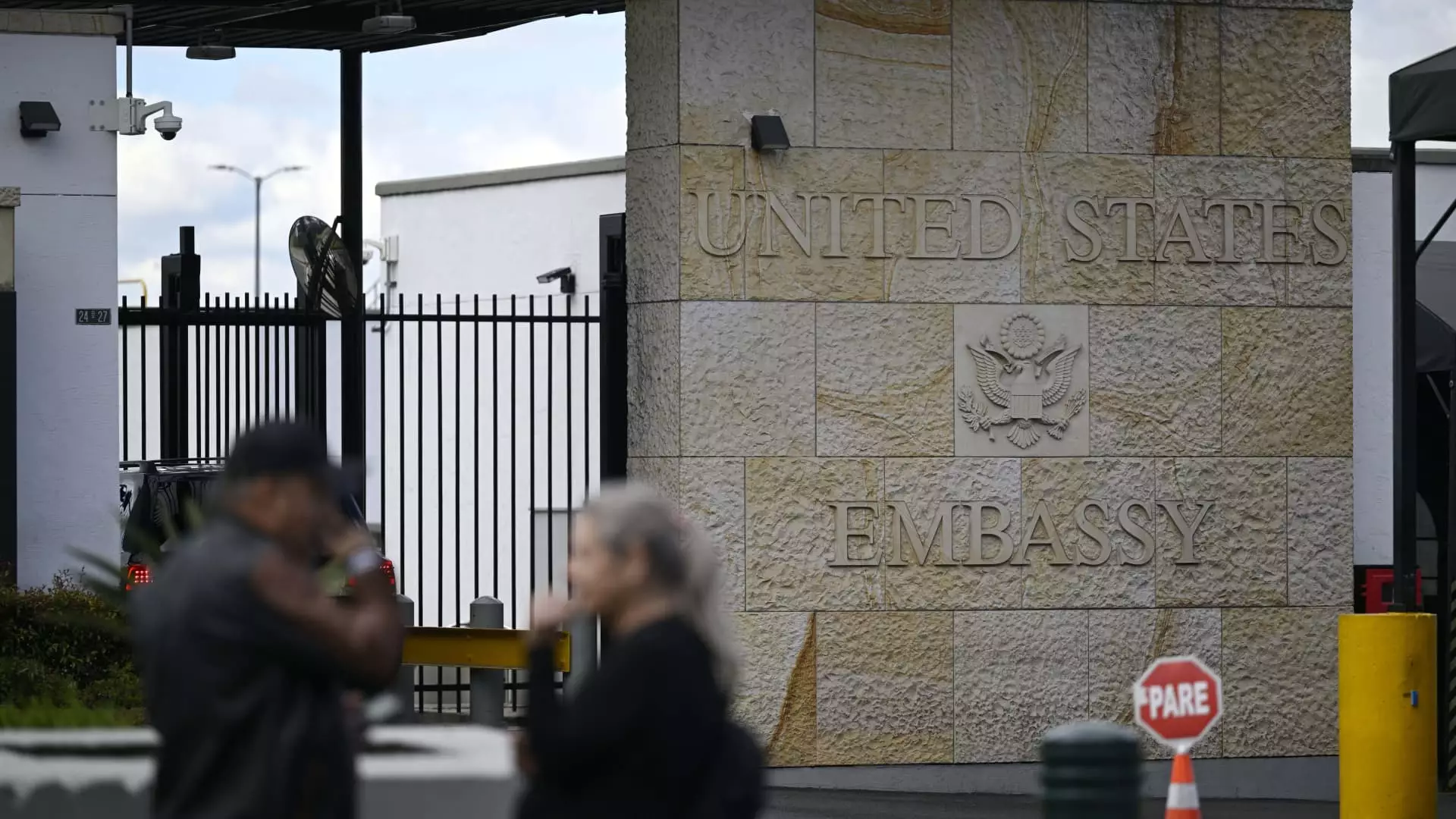The administration of former President Donald Trump took acute measures to restructure the U.S. diplomatic landscape, emphasizing a paradigm shift that echoed his “America First” ethos. Reports surfaced indicating that U.S. embassies globally were notified to brace for substantial staff reductions, both among American diplomats and local hires. This initiative reflects Trump’s ongoing ambition to recalibrate the diplomatic corps, focusing on efficiency and alignment with his administration’s foreign policy directives.
The reported request for a 10% reduction in both categories of staff poses a significant challenge to the traditional functioning of American embassies. Typically, these institutions operate with a blend of U.S. personnel and locals, the latter forming the backbone of most diplomatic missions by offering insights into host country dynamics. With this directive, many within the diplomatic community found themselves grappling with uncertainty about their roles and the broader implications for U.S. influence on the global stage.
Accompanying these staffing changes was a troubling trend within the U.S. Department of State, where around 60 contractors involved in the bureau focused on Democracy, Human Rights, and Labor faced termination. This move, arguably indicative of a worrying de-prioritization of human rights advocacy, raises crucial questions on how a reduction in personnel could affect the United States’ commitment to promoting democratic values internationally. The dismantling of such initiatives appears to signal a retreat from global leadership in favor of inward-looking policies.
The lack of clarity from the State Department, which declined to comment on specific personnel matters, has led to speculation regarding future cuts. The ambiguity surrounds not only the stability of current diplomatic staff but also the broader repercussions for U.S. global standing in advocating for human rights and democratic governance.
Adding to the sense of urgency, Trump’s executive order mandating a comprehensive overhaul of the foreign service delineated a vision for a more aligned and responsive diplomatic apparatus. It charged Secretary of State Marco Rubio with the task of ensuring that the foreign service faithfully implements Trump’s foreign policy agenda—an agenda that defined loyalty and alignment with administration goals as paramount.
This order was accompanied by a chilling directive: failure to adhere to the president’s vision could lead to disciplinary actions, including dismissal. Such language indicates a departure from traditional notions of diplomatic objectivity and professionalism, urging staff members to prioritize loyalty over the nuanced understanding and execution of American foreign policy.
Additionally, this drive to reshape U.S. foreign aid and dismantle agencies like the United States Agency for International Development (USAID) showcases a broader intent to minimize governmental roles that do not align with Trump’s priorities. The evaluation of governmental efficiency by Trump’s close ally, Elon Musk, is part of a larger effort to scrutinize federal operations, indicating a shift towards privatization and decreased oversight in foreign policy matters.
Musk’s involvement leads to questions about the suitability of such a strategy when dealing with complex international issues. With a billionaire advocating for reduced government scope, the ramifications for national interests could be significant, as important humanitarian efforts risk being sidelined or inadequately funded.
Ultimately, the strategic cuts and shifts within U.S. embassies and related agencies reflect a radical reform that prioritizes political alignment over traditional diplomatic protocols. The U.S. diplomatic corps, historically a representative of American values abroad, now faces challenges as it navigates a landscape where administrative loyalty may overshadow expertise and professional judgment.
As the state of American diplomacy continues to evolve, the fundamental question persists: what does this mean for the United States’ role on the global stage? The ongoing transformations will likely leave lasting impacts, not only on those within the foreign service but also on the international community with which they interact. The emphasis on streamlined staffing, coupled with a push towards ideology-driven policy implementation, may redefine not just the function of U.S. embassies but also the broader perception of American leadership in world affairs.


Leave a Reply